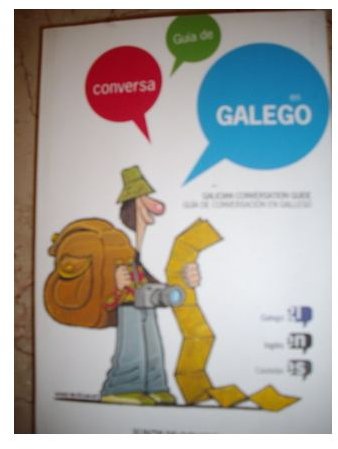Learn about Galacia and Get a Short Course of the Galician Language
Use of Galician language
Galician or Galego is the official language together with Spanish and is used everywhere: in schools, newspapers, regional television and indications and explanations in museums, to name but a few. Therefore it’s extremely helpful to be able to read and speak a few words and phrases as you will even find road signs in Galego.
Origin of Galician
The language has its origins in Latin and arrived in the Roman province of Gallaecia in the 1st century AD. It evolved from Latin and, between the 12th and 15th century was popular all over Spain as a language of literature, religious poetry and prose.
During the 15th century, in what is known as the “Dark Century” , the language was relegated more or less to oral usage only and became the way of communication of the rural population. Romanticism in the 19th century saw the literary heyday of Galego.
During the times of Franco, Galego was forbidden and persecuted, but, after the constitution of 1978 and the Statute of 1981 granting Galicia autonomy, the language has made a huge come back.
Differences in Alphabet and Pronunciation to Spanish (Castellano)
When seeing text in Galego, you will note that there is a great similarity to Portuguese. Compared to Spanish the absence of the letter “J” is notable. The same applies to the letters “K,W and Y”. The letters only exists in words of foreign origin, including Spanish. Foremost is the letter “x” which replaces the Spanish “j” in Galego and is pronounced ‘sh’ like in the English word “she”. Otherwise Galego is pronounced much as written, which make it quite easy for travelers.
Galician Phrases
Greetings
Bos dias – Good morning
Bos tardes – Good afternoon
Boas noites – Good night
Abur – good bye
Pleasantries
Que tal? – How are you?
Eu ben, e ti – Fine, thanks, and you?
Eu chamome – my name is…
Ti como te chamas? – what´s your name?
Encantada – pleased to meet you
Ti – you (informal)
Vostede – you (formal)
De onde es? –where are you from ?
Eu son americana – I’m American
Vinemos todos xuntos de vacacions – we are all together on holiday
Perdona, pero non entendin o que dixeches – sorry, I don’t understand what you are saying
Non falo ben galego – I don’t speak Galego well
Important signs
Saida/Entrada – Exit/Entrance
Praias – beaches
Homes/Mulleres – men/women
Prohibido verter lixo – no littering
Cans ceibos – Beware of the dog
Aberto/pechado – open/closed
Perigo – danger
References
- Wikibooks Curso de Lingua Galega; http://gl.wikibooks.org/wiki/Curso_de_lingua_galega
